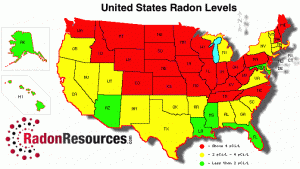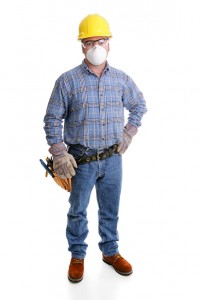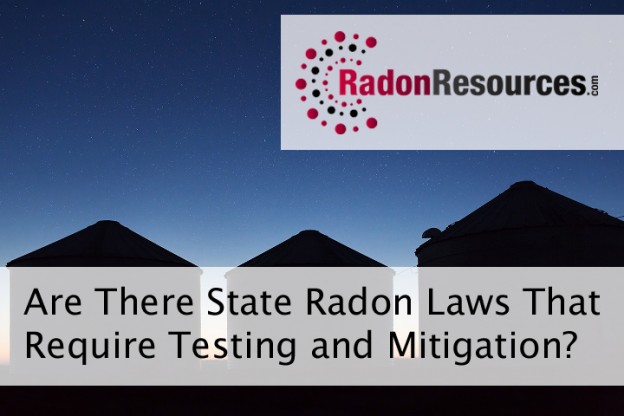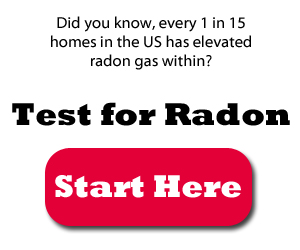You’d think since Radon is the second leading cause of lung cancer in the US, there would be a lot of legislation surrounding the issue. It is the cause of more than 21,000 deaths each year, after all.
Sadly, that’s not the case. There aren’t many state radon laws that encourage testing or mitigation.
 In the late 80’s and 90’s, there was a big push in state legislature. Radon was a hot issue and it was covered by many. Attention and awareness have since died down, and laws related to radon have also fallen by the wayside.
In the late 80’s and 90’s, there was a big push in state legislature. Radon was a hot issue and it was covered by many. Attention and awareness have since died down, and laws related to radon have also fallen by the wayside.
About 75% of the 50 US states do have some kind of law that addresses radon gas, but not in the way you might think. For example, most laws require radon professionals to be nationally certified or licensed. Also, there are laws that require home sellers and realtors to disclose any known radon information about a property.
No state radon laws, however, require homes be tested for radon during a real estate transaction. That is concerning, to say the least.
We’re going to take a look at some of the state radon laws that exist and what they entail.
Radon Disclosure Laws
About 30-40 states have radon disclosure laws. What this requires is simple. During a real estate transaction, the seller must disclose any and all known radon levels or testing results.
 If they have never tested the property for the presence of radon, then that’s all they have to say during a home sale. This leaves the testing and mitigation on the shoulders of the buyer.
If they have never tested the property for the presence of radon, then that’s all they have to say during a home sale. This leaves the testing and mitigation on the shoulders of the buyer.
A small list of states also requires sellers to include a warning about the presence of radon in the home. This is generally included in the sale contract or an amendment to the sale documents.
The states that require a warning include:
- AK
- AZ
- DE
- FL
- IL
- KS
- MD
- ME
- MI
- MN
- MT
- NC
- NH
- NY
- OH
- OR
- RI
- SC
- SD
- TN
- TX
- WA
- WI
Click here to learn more about radon disclosures in real estate…
Radon Certification Laws
Radon certification laws address the businesses and professionals that will be dealing with radon gas in homes. This includes companies that provide testing and mitigation services.
 20 to 30 states have laws in place that require professionals to earn a certification or license before they can practice radon duties.
20 to 30 states have laws in place that require professionals to earn a certification or license before they can practice radon duties.
The regulations outline procedures and requirements for qualifications, testing and mitigation standards, reporting and analytics, and finally penalties (for not following regulations).
There are also third-party certification programs like the NEHA that work directly with state governments to license and qualify professionals.
What this means for home and property owners is that you should always ask for qualifications when hiring a radon professional.
Radon Testing Laws
The first thing you should understand is that there are currently no national or state radon laws that require testing in homes. This means that sellers and property owners are under no legal obligations to have a residential building tested for the presence of radon.
A handful of states do require that schools and child care centers be tested.
States that require radon testing in schools:
- CO
- CT
- FL
- VA
States that require radon testing in child care centers (daycare and after school programs):
- CT
- FL
- IA
- NJ
- RI
It is important to note that although these state radon laws require testing, that does not mean they also require mitigation to deal with elevated levels. This may seem counterintuitive to why these laws exist – and it is – but unfortunately, there’s nothing that requires a lot of these properties to mitigate the issue.
Currently, Rhode Island is the only state that requires radon testing for “public or high priority buildings” also. This includes places like the state courthouse, libraries, and similar public properties.
Maine does require that residential buildings be tested for the presence of radon every ten years after they are built, unless they have a mitigation system installed. Yet, to have the property tested a tenant or landlord must request it.
Click here to learn more about radon testing…
Radon Mitigation Laws
The following states require radon testing and mitigation if elevated levels are discovered:
Mitigation in Schools:
- WV
- RI
Mitigation in Child Care Centers:
- ID
- MD
- MI
Mitigation in State Buildings:
- NH
Click here to learn more about radon mitigation…
Radon-Resistant New Construction
Finally, we have the radon-resistant new construction state radon laws. These require that new homes and buildings be constructed using radon-resistant materials and techniques. In theory, these locations should not experience radon issues, but it’s still a good idea to test them regularly just to be sure.
The states that have these laws in place include:
Schools:
- CT
- NJ
- RI
Homes:
- NJ
- MI
- WA
- MN
Help Raise Awareness
Now you see why we’re always talking about raising awareness for the dangers of radon. Most of the state radon laws are necessary, but still lacking. It would be great to see some of these states pass laws that also require property owners and sellers take action.
If you’d like to learn more about radon gas or how you can get in touch with a radon professional to have your home tested, feel free to visit the rest of our site!
Source: NCSL (National Conference of State Legislators) Radon Overview




